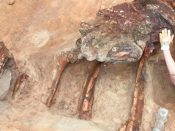Por Ana Preto (CBMA - Molecular and Environmental Biology Centre, Department of Biology, UMinho).
Colorectal cancer (CRC) is the most commonly diagnosed cancer in Europe and the 2nd cause of cancer related deaths.
The type of diet is an important risk factor for CRC. Dietary fiber and the gut microbial-derived short chain fatty acids (SCFA), namely acetate, propionate and butyrate, exert multiple beneficial effects on the colon energy metabolism and have a role in the regulation of CRC cells survival. Several genes have been implicated in the multistep genetic model of colorectal carcinogenesis, being KRAS oncogene mutations (KRASm) frequent events in this process. During the last years, we have been using yeast and human colon cells as complementary models in order to identify new molecular targets and therapeutic approaches for CRC. This talk will focus on our recent published results namely in the mechanism by which acetate regulates CRC cells-induced apoptosis and in the role of KRASm signaling on autophagy regulation in CRC.
In brief, our findings indicated that lysosomal cathepsin D is implicated in acetate-induced apoptosis and its inhibition sensitizes CRC cells, what could be used as a novel therapeutic strategy. Moreover, our results also show a role of KRASm in induction of autophagy, suggesting the use of autophagy inhibitors as an alternative therapeutic approach in CRCs harboring mutated KRAS.






















